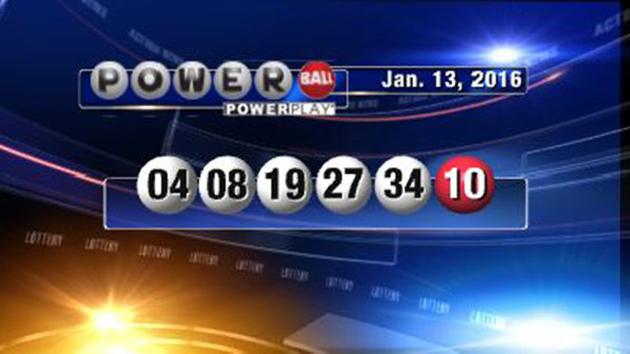
At least three winning tickets for the record $1.6bn Powerball lottery jackpot have been announced as per officials and media reports.
The winning tickets in the Powerball jackpot were sold in California, Tennessee and Florida.
The previous draw was the 19th without a grand prize winner, which requires all six numbers to match.
Officials said it would take several hours to know if there were any other winning tickets.
The identity of the winners is not yet known.
Thousands of people queued up outside shops across the US on Wednesday, hoping to defy the odds of 292.2 million to one.
California Lottery tweeted that the winning ticket in the state was sold at a 7-Eleven store in Chino Hills, a suburb east of Los Angeles.

Television pictures showed a cheering crowd gathering at the shop after the result was announced.
The winners will share a prize of $1.586bn. They can collect their winnings in annual payments over 29 years, or opt to share a lump-sum payment of $930m.
The government will also share in the big prize, however, levying a 39.6% federal income tax on the winners – and the payout will also be subject any taxes that the winners’ home states may impose.
How did the jackpot get so big?
No-one has won the draw since 4 November. The prize is based on ticket sales so high jackpots usually create a snowball effect until a winning combination is picked. A new format introduced in October makes these massive jackpots more likely, meaning more records could be broken in future.
Here’s four tips from Wells Fargo Advisors if you win the Powerball Lottery.
Take lottery winnings in a lump-sum. If you’re disciplined enough not to spend the money all at once, you may want to consider taking it all in a lump-sum. Typically, receiving your winnings in this manner will give you more money in the end than if you were to be given payments over the years. For example, if you receive $1 million and pay half of that in taxes, you’ll end up with $500,000 to invest. At a hypothetical 10% rate of return, your winnings would have the opportunity to grow to more than $3.3 million in 20 years. By comparison, if you chose to receive your windfall in 20 annual installments of $50,000 and invest each year at that same 10%, you would end up with approximately $2.8 million — a difference of more than $500,000. The more money you can get invested right away, the better off you could be.*
Choose the installment option if you’re a spendthrift. On the other hand, if having an account with a lot of money in it is too tempting for you to handle, take your fortune over a period of several years. You may not have this option with every type of windfall, but if you happen to win the lottery, the sponsor may invest your winnings for you. You may get a better rate of return by taking the money in a lump-sum, but that’s no use if you end up spending all of it without planning.
Keep income taxes in mind. Most likely, about half of what you win or inherit will go to pay federal and state income taxes. And remember, a multimillion dollar payout this year would put you in the highest federal tax bracket at 39.6%. Add state income taxes to that, and you may end up losing half of your money to taxes. In cases where winning lottery tickets are purchased outside your home state, it’s possible that you would be taxed in your home state and the state where you purchased the ticket. Careful tax planning can help you keep as much of the money as possible.
What happens when you die? If you’re married, the money – no matter how much – may be transferred to your spouse free from estate taxes. However, if you’re single, the amount totals more than $5,430,000, and you die this year, your heirs may have to turn over 40% of it to the federal government in the form of estate taxes.





Be the first to comment